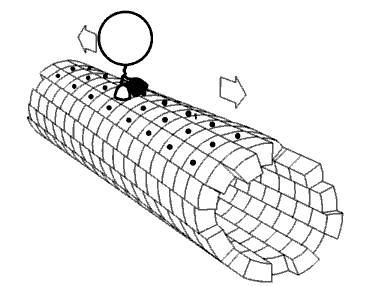
Photo from academic.microsoft.com
Proper folding of proteins is critical to producing the biological machinery essential for cellular function. Over the course of evolution, the rates and energetics of a protein's folding landscape must… Click to show full abstract
Proper folding of proteins is critical to producing the biological machinery essential for cellular function. Over the course of evolution, the rates and energetics of a protein's folding landscape must be maintained such that the protein folds and remains folded over its biological lifetime. Developing a comprehensive understanding of how a protein's folding process is modulated during evolution is critical to our understanding and engineering of protein biophysical properties. In this study, we characterized the folding trajectories of ancestral proteins of the ribonuclease H (RNase H) family by using ancestral sequence reconstruction to access the evolutionary history between RNases H from mesophilic and thermophilic bacteria. We find that the overall folding pathway of RNase H is preserved over billions of years of evolution. Although thermodynamic stabilities diverge between the mesophilic and thermophilic lineages, kinetic stability increases along both, with the last common ancestor folding and unfolding faster than the modern descendants. The conserved folding intermediate permits this paradoxical uncoupling of thermodynamics and kinetics, and allows for the folding landscape to independently respond to different selective pressures on global stability and kinetic barriers.
Journal Title: Biophysical Journal
Year Published: 2017
Link to full text (if available)
Share on Social Media: Sign Up to like & get
recommendations!